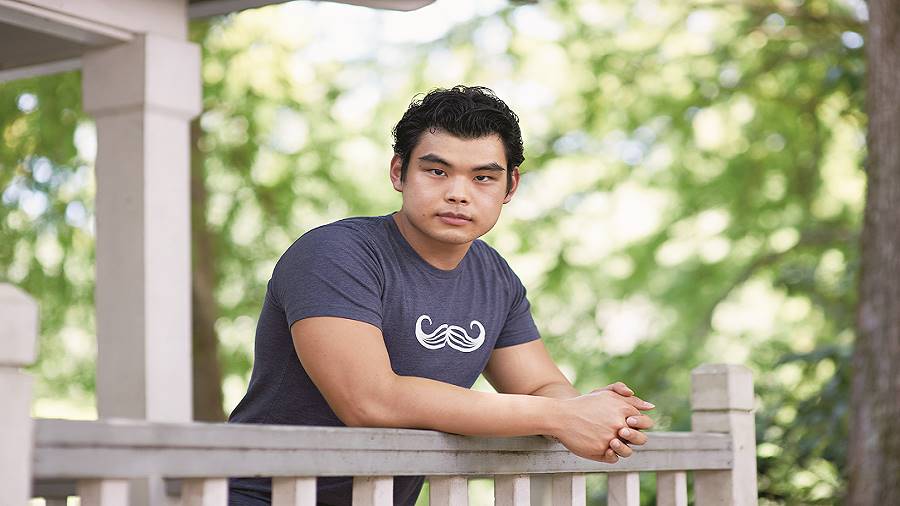A junior at Texas State University, US, lost his jobs as a bartender and a barista when the pandemic started. Now he sells instant ramen and cannabidiol or CBD-infused baked goods that he makes in his kitchen.
A senior at Stanford University, US, used to work at his campus library until it shut down. Now he has a job with a storage marketplace start-up modelled after Airbnb.
Working through college is nothing new for college students in the US. About 70 per cent have some type of job. When the pandemic hit in the spring semester, about one-third of students lost their jobs. Many of them have had to get creative, taking advantage of a digital economy that grew up around them.
The Art of Ramen
Carrots, celery, onions and garlic, tossed in a white miso paste and then roasted in the oven, give Raymond Cabrera’s instant ramen more flavour, he said as he chopped vegetables in the kitchen of his San Marcos, Texas, apartment during an interview over video.
After losing his jobs in March, he filled his days with a lot of thinking — and, of course, YouTube videos.
“That’s kind of where I got that idea for the ramen,” said Cabrera, 23, a junior and recent transfer to Texas State University.
Cabrera now sells his instant ramen to an Austin, Texas, coffee shop, hoping to one day branch out to selling at farmers markets.
His packaging is simple: plastic containers hold his homemade broth with pulverised added spices and uncooked store-bought noodles.
The coffee shop pays $1 per container, and he usually makes about 50
at a time.
The pandemic further spurred Cabrera to start making cookies and brownies infused with CBD, a cannabis derivative believed to have health benefits. He sells them to relatives and friends for about $5 to $10.
Sara Cochran, a professor in the department of management and entrepreneurship at the Kelley School of Business in Indiana University, US, said the ingenuity students are showing during the pandemic demonstrates why “this generation has been called the most entrepreneurial generation yet”.
Eye on Etsy
Courtney Brunson, 20, had been planning to work as a resident adviser on campus at Clemson University, South Carolina, US, over the summer, but soon after she went home early to Florence, South Carolina, in March, she learned that the job had gone away.
She is a junior majoring in management. Her parents pushed her to be innovative, so she settled on making scented candles. She hopes to eventually set up an Etsy shop. She has given up on being an RA but has not seen many other opportunities around campus.
Neil Burton, executive director of Clemson University’s Center for Career and Professional Development, said the career centre was trying to direct students to more campus-specific opportunities, such as internships, as more traditional off-campus jobs become scarce.
Job at an Online Start-up Theo Charusi, a 22-year-old senior majoring in science and technology at Stanford University, said he experiences probably “more pressure than the average student”.
“Nothing is open, or things are barely open, and nobody is hiring,” Charusi explained, “so you have to get creative and find ways to make money.”
When his campus library job went away, Charusi went to work for online platform Stache, which he calls an “Airbnb for storage”, which was started a few years ago by a friend of a friend.
The platform connects people looking for affordable storage with others who rent out parts of their homes or garages for storage space. Since his mother lost her job in food services, he has been sending $800 (about Rs 59,000) a month back home, where she cares for his two siblings, ages 4 and 8. “It’s stressful,” he said, “but I feel like a lot of people are in even worse positions, so I’m lucky in the sense that I got the opportunity I have.”
Masks for Instagram
A red Cricut cutting machine and a heat press are the foundation of Ta’Marek Sweat’s college apparel business, the College Trap, which she started in early July. A sophomore studying biology at Texas A&M University, Sweat, 19, said she had made sweatshirts, T-shirts and masks for students at over 30 schools, having made about $2,000 (Rs 1,47,000) as of mid-August.
She runs the business mainly through Instagram. Masks are $7 each, or two for $11. When she started the business, she was still waiting to hear back about a campus mentor position that she had applied for in the spring.
Sweat buys supplies at wholesale shops in Houston. On a good day, she works on about 15 to 20 products, prepping them to be picked up or shipped and enclosing personalised thank-you cards. This fall, she’ll move the business from her mother’s dining room table in Pearland, Texas, to her apartment in College Station. She’s still waiting to hear about the mentoring job.
New York Times News Service











